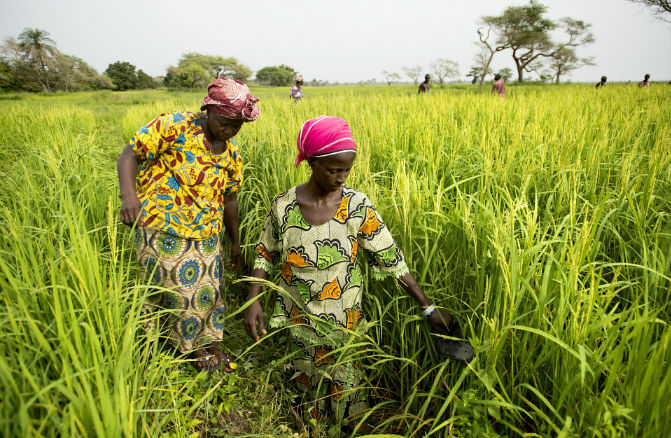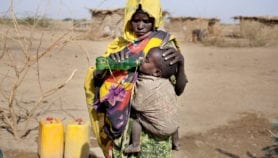By: Sam Otieno
Send to a friend
The details you provide on this page will not be used to send unsolicited email, and will not be sold to a 3rd party. See privacy policy.
[NAIROBI] An online tool that aids analyses and use of climate data to boost resilience to climate impacts has been launched in Kenya.
The tool was launched during the Enhancing National Climate Services workshop organised last month (16 March) by Kenya Meteorological Department (KMD) in collaboration with US-based International Research Institute for Climate and Society (IRI) and UK Department for International Development.
“Reliable climate information is crucial in efforts to enhance solutions against the negative impact of climate change.”
Peter Ambenje, Kenya Metrological Department (KMD)
Peter Ambenje, director of KMD, tells SciDev.Net that credible rainfall data helps farmers make strategic decisions about what to plant, where to plant and how to manage crops as the season progresses.
“Therefore, reliable climate information is crucial in efforts to enhance solutions against the negative impact of climate change and to maximise the benefits of favourable conditions,” notes Ambenje.
He explains that the climate data library maproom tool is a collection of maps and other figures that monitor climate and health conditions such as malaria, pneumonia and meningitis caused by climate change.
“The maps and figures can be manipulated and are linked to the original data …[so] this is a good place to see which datasets are particularly useful for monitoring current conditions,” explains Ambenje.
Ambenje says people have been requesting for data at sites where the KMD does not to have observations, and that has been a major challenge in terms of giving out data.
The tool was developed by IRI with funding from the DFID. Researchers collected ground-based climate observations data in Kenya, blended it with global satellite data, and generated datasets that could be analysed by statistical techniques to create quality climate products with local relevance and national coverage, enabling targeted decisions and development gains.
Tufa Dinku, a research scientist at IRI, says that climate data is a significant driver of decision- making, adding that the demand for information services from national meteorological services is high, and that the tool could help meet such demands.Salome Kariuki, a farmer in Embu County, Kenya, tells SciDev.Net that the online tool could benefit smallholder farmers at community levels because it will help them to know the correct time to cultivate their crops.
“It is very important that good data is available so that end users will make crucial decisions,” explains Kariuki, adding that scientists should make potential users become aware of the tool.
This piece was produced by SciDev.Net’s Sub-Saharan Africa English desk.














